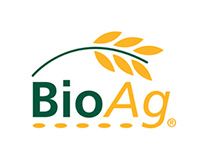
Case
Study
Location
Calivil, Victoria
Crop
Dairy
Clymo Family, ‘Calmo Farms’ Calivil VIC
The owners of northern Victoria dairying operation, Calmo Farms, have significantly improved the vigour and persistence of their pastures since they adopted a biological farming program four years ago.
The Clymo family, Jade and Belinda, and Trevor and Jan, milk about 500 Holstein cows on 400ha of irrigated pasture and lucerne at Calivil, 40kms west of Rochester. The Clymos milk in a 50-stand rotary dairy with a computerised identification system linked to production records and the feed delivery system. The herd has an average production of about 9,000 litres of milk at 3.6% butterfat (325kg) and 3.3% protein (297kg).
A fourth-generation dairy farmer, Jade was studying lot feeding in Adelaide when his marketing lecturer encouraged him to investigate more environmentally friendly methods of livestock production.
“Calmo Farms have significantly improved the vigour and persistence of their pastures since they adopted a biological farming program four years ago.”
Spurred on by some of the problems which were becoming evident on his parents’ property – including mastitis, soil compaction, poor nitrogen fixation in legumes and a spate of insect pests – he contacted an organic dairy farming co-operative.
“I’d always thought organic farmers wore grass hats and flower shirts but I liked the principles of the dairy Co-op,” Jade said. “One of their farmers put me onto BioAg.”
After soil and tissue analysis conducted by BioAg revealed the clay loam soils to be high in magnesium but deficient in calcium and available phosphate, Deniliquin-based BioAg agent, Ivan Mitchell, prepared a custom-made fertility program for Calmo Farms. Jade stopped using urea and instead applied 150kg per ha of BioAgPhos® and 500kg per ha of lime using a belt spreader.
BioAgPhos is a reactive phosphate rock that has been treated with a proprietary microbial culture. About half of its phosphorus content is available immediately for plant use, while the remainder is slowly digested by the microorganisms and added to the nutrient reservoir in the soil. The improved soil microbial activity also unlocks phosphate, calcium and sulphur already in the soil, leading to long-term benefits in soil structure and fertility.
Ivan also recommended the use of two fermented liquid cultures, BioAg Soil & Seed™ and BioAg Balance & Grow®, which deliver essential nutrients and metabolites directly to pastures and crops, as well as stimulate microbial activity in the soil.
Jade said there was an immediate and sustained improvement in pasture vigour and persistence. “I was pretty amazed when things started to happen like Ivan said they would,” he said.
“There’s a lot more clover in our pastures as levels of available phosphate have increased. The nodules on our clover used to be small, clear and inactive but now they’re big and pink and very active.”
“There’s a lot more clover in our pastures as levels of available phosphate have increased. The nodules on our clover used to be small, clear and inactive but now they’re big and pink and very active. Once we switched the irrigation off, our pastures stayed green and grew for a lot longer than they did in the previous drought. It’s dry now but there’s seed all over the ground.”
Jade has also noticed a number of other improvements. “We’re getting significantly less mastitis in the herd, although this could be partly due to feeding straw on a gravel pad in a laneway rather than in the paddock,” he said. “Our pastures used to get hit by insect pests, particularly red legged earth mite, but now they only take hold when the plants are under stress. The population of predatory and beneficial insects has boomed, creating a natural balance with the mites. We have stopped spraying insecticides.”
Calmo Farms boasts more than 150ha of permanent ryegrass and clover pastures, 87ha of annual pastures consisting of sub clovers, shaftal and ryegrass and 44ha of lucerne.
All pastures are now treated with BioAg Balance & Grow on a monthly basis and 150kg per ha of BioAgPhos during autumn, while the permanent and lucerne pastures receive a second treatment of BioAgPhos in spring.
“I’m very comfortable with the BioAg system,” Jade said. “It doesn’t cost us any more than conventional farming and we’ve maintained our milk production and quality. It’s a pretty easy way to farm and in the long haul, I think it will be cheaper because we are no longer pouring on nitrogen all the time.
“I wouldn’t mind taking the next step and becoming a certified organic operation but there are a few obstacles in the way, not the least being the drought, how to deal with mastitis and how to control problem weeds, such as white horse nettle.”
Download case study
Download a PDF version of the above case study.

Recent Comments